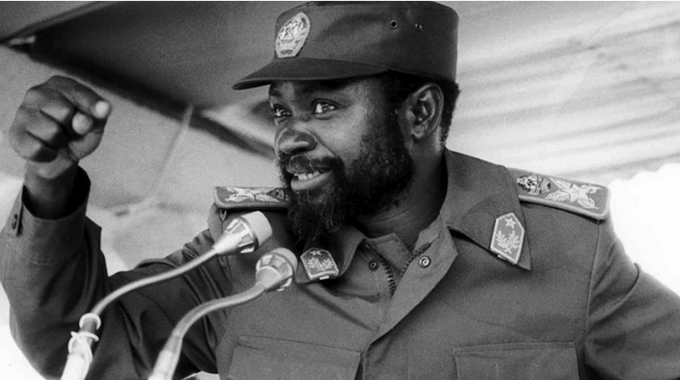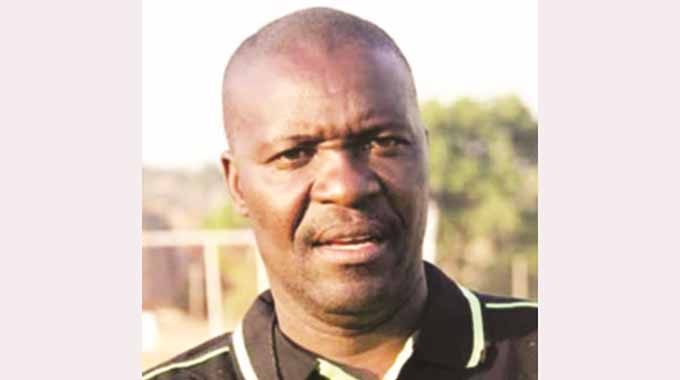Remembering Samora Machel

Tinashe Muchuri Correspondent
Mourning is for the living. It is the time to remember all the things the living did with the dead.
Imagine all the things the living were anticipating to do with the dead; the journeys they were planning to undertake together.
It is during that time the living sing songs pretending they are singing for the deceased one more time.
Those nimble footed will be giving the stage an indelible memory on the day the living will be mourning the dearly departed.
Mourning, where I come from, was not for everyone. Those below the age of 18 were not allowed to mourn any deceased.
They were regarded too young to be troubled with issues of death.
Issues of death were for the elderly and those already in marriage. The young were too worry-free to be introduced to mourning.
Children would be evacuated from a place where death would have taken place and stay away till the deceased was buried.
Slowly, some practice was stealthily crippling the old-age practice of mourning.
The church had converted many into the new belief.
Before Independence, people were not allowed to climb mountains to fast and pray. No one was allowed to worship anywhere except in prescribed churches.
Besides, as more and more African churches emerged, the rulers of foreign origin would not at one time let them enjoy prayers in gatherings.
The church was known for energetic dancing. It was known for what is today known as clacks dance.
Everyone, from children to adults were known for competing in expressing their worship to God through dance.
Some would merely come to enjoy dances before going away to cool their throats with seven days brew.
Others would actually take the visit to church to marvel at the dancers before flirting with the opposite sex.
Church is taken as a platform for different things by different people.
I vividly remember an incident that took place 32 years ago, when Samora Machel died.
When Samora Machel died on October 19, 1986, we all gathered in different spaces to mourn him.
Some went to political gatherings and others organised church gatherings to mourn him in prayer as they prayed for peace and tranquillity after the death of Mozambican leader.
We were among those who went to a church gathering that allowed even children to participate in this mourning period, unlike at political gatherings that only accepted adults then.
We gathered in Mbire Village. It was a church service for the late Samora Machel, a comrade who helped Zimbabweans struggling against colonialism to fight the oppressive white system.
As alluded earlier on, it was the year 1986, and I was about to sit for my Grade Seven final examinations.
In our area, the soldiers were still patrolling and camping to defend the villagers from the said dissidents.
On this particular day, the church service was supposed to be a day of mourning, but in our church then, we were not allowed to mourn the dead.
We were baptised and were informed that the dead would not live among the living and the living could not gain anything from the dead.
Once one is dead, there is no longer any connection with the living; the only time the dead will start enjoying another life is when Jesus comes and raise all the “sleeping”, meaning the dead.
So we gathered to celebrate Samora’s life.
The church service began well as we sang and danced to different hymns.
When we sang “Ngirozi dzakati kwanamwana kutarisa pasi”, three girls got possessed.
The church elder started spraying them with water on their faces, ordering the spirits that had possessed them to leave.
The spirits could not budge. They were not easy to intimidate. They stayed put. The elders continued spraying the three girls with holy water.
The girls became violent. They started kicking the strong men who were holding them down. They threw them away.
Every person who tried to hold them back was kicked.
We all stood still, looking at them in awe. No one, not even the church elders could go near them or try to spray water at them.
Then one of them spoke.
“We are not demons. We are comrades. We fought to liberate this country. We all died during the fight for yours and our liberation.
“I am the commander of these two. We have come to mourn this great man together with you. Stop wasting your water. We are not here to harm anyone. We are here to celebrate his life.
“He was a man of good heart. He gave us refuge and space to train.
“We are grateful of what he did, and we are who we are today because of him.
“The disturbances bedevilling the country will end next year. Mark my words. They will end. Let us celebrate together.
“After the songs that we are going to sing here, my friends will be the first to go and I their commander will go last. Join us in this celebration,” he said through the possessed girl.
And they sang.
“Nora! Nora! Nora vasikana.
“Mhururu kuenda nekudzoka vakomana zvaida vakashinga”.
They danced as if they were holding guns.
Dust twirled as the girls sang. People had no choice, but to stare at them shell-shocked.
These girls were young and never had they attended a rally nor a pungwe before, neither were they chimbwidos.
They were simple village girls.
The previous year, the then Prime Minister of Zimbabwe Robert Mugabe had visited Rudhanda Primary School where he planted a tree at the V-Block at the invitation of Senator Gutsa, who was the headmaster then.
It was after the third song that the spirits of the two junior comrades left and the girl who was possessed by the spirit of the commander sang another song “Mbuya Nehanda kufa vachitaura kuti tinotora sei nyika ino”, before his spirit also left.
Talk of how the late Cde Samora Machel was mourned by the spirits of departed liberation fighters at a church service permeated our church sessions and daily community interactions.
May his soul rest in eternal peace! He was, indeed, a dear comrade.










Comments